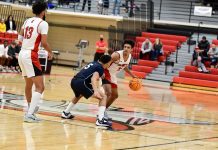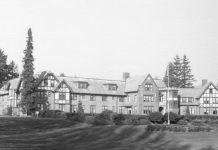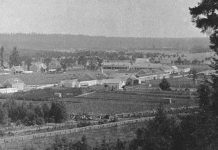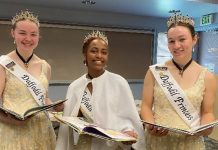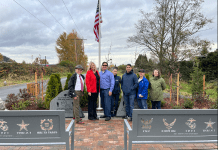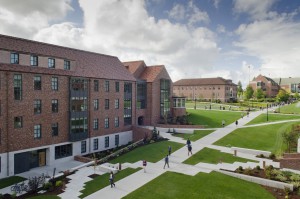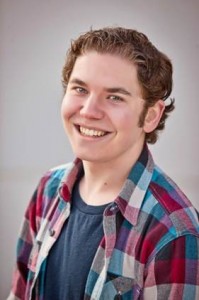 Submitted by University of Puget Sound
Submitted by University of Puget Sound
University of Puget Sound senior William J. Rathje ’15 has been named a Rhodes Scholar. The accomplished student from Lake Oswego, OR, is Puget Sound’s third Rhodes Scholar, and the first to also be offered a British Marshall Scholarship.
Rathje will join 31 other young men and women who will represent the United States as 2015 Rhodes Scholars. The Rhodes Scholars, selected from a pool of 877 candidates, receive full financial support to pursue degrees at the University of Oxford in England. They were announced on Saturday, Nov. 22, by the Office of the American Secretary of The Rhodes Trust.
Majoring in both computer science and English literature, Rathje attends Puget Sound as a Lillis Scholar, which provides full tuition, room, and board for students of exceptional academic promise. As a Rhodes Scholar, he will study for a Master of Science in computer science at Oxford beginning in October.
Rathje has pursued a broad liberal arts education at Puget Sound, exploring his talents in theater performance, poetry, musical performance and composition, the sciences, and applied science.
“I have seen no Rhodes candidate more enthusiastically supported by faculty colleagues than Billy,” said Puget Sound President Ronald R. Thomas. “We expect that Billy’s work in computer science will be applied across his wide-ranging talents—theater performance, English literature, musicals, and the sciences. We believe Billy will be an E. O. Wilson of his generation, the kind of revolutionary figure who transforms fields of knowledge.”
A Goldwater Scholar and a junior member of Phi Beta Kappa, Billy has conducted research in proteomics, biochemistry, and computer science, and has developed four applications for iOS and Android, attracting than 15,000 downloads. He also co-founded a literary magazine for new plays, and prior to arriving at Puget Sound, composed a full-length musical that was performed by a professional cast in Portland, Ore. He is a contributing writer to USA Today College and has a peer-reviewed publication in computer science.
The Road to the Rhodes
Encouraged by perceptive scientists at Oregon Health Sciences University, Rathje, while still in high school, applied his interest in linguistics to a comprehensive reconsideration of protein search engines. His work resulted in the identification of a persistent bias in two decades of scientific literature that upended assumptions in the field.
To do this work Billy simultaneously taught himself organic chemistry and the programming language Python. Puget Sound Professor Brad Richards observed this same pattern of self-motivated preparation and drive in Billy’s summer 2014 project that “advanced the state of the art in proofs of software correctness” and resulted in a forthcoming, first-author publication in proceedings of the Association for Computing Machinery, a notable achievement for an undergraduate.
Demonstrating creativity and entrepreneurship where he finds a gap or sees a need, Billy co-founded Proscenium, a free, on-line journal to give a greater voice to playwrights. Faced with 200 submissions for the inaugural issue, Billy wrote new computer code to streamline the laborious process of moving scripts from submission format to publication format. With the second edition of Proscenium due in December 2015, Billy intends to establish a whole new model for bringing new plays to audiences.
Crossing yet other disciplinary boundaries, Billy is applying concepts of theatrical direction to challenge traditional notions of how writing tutors work with students. Synthesizing field literature with his theater and tutoring experiences, he suggests that nondirective approaches to tutoring serve historically underrepresented and nontraditional students less well that more directive, disciplinary-based approaches. His interest, as he explains, to “align voices that others would never have seen united to create a novel synthesis” has earned him two national conference presentations.











